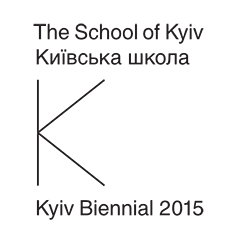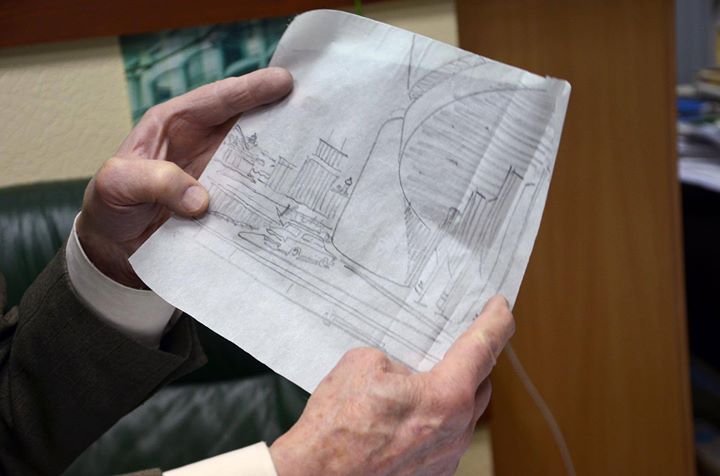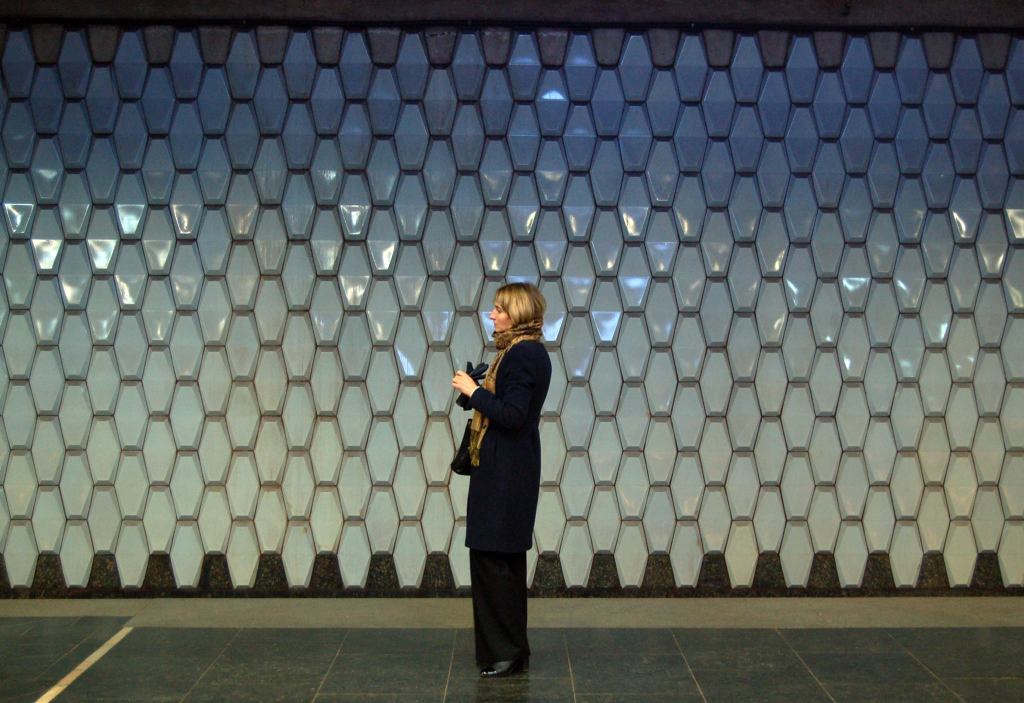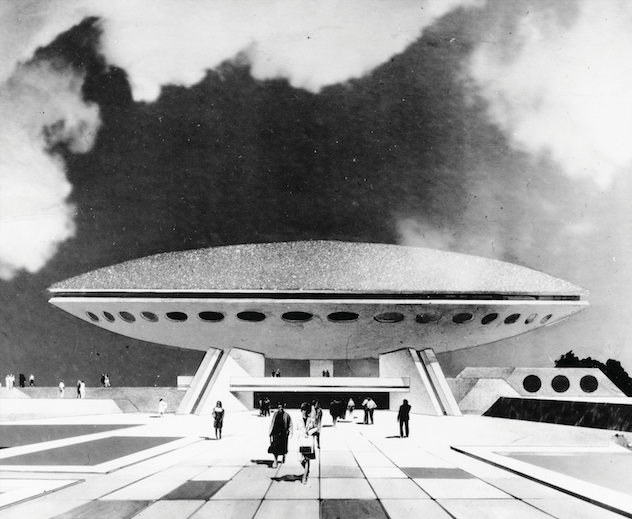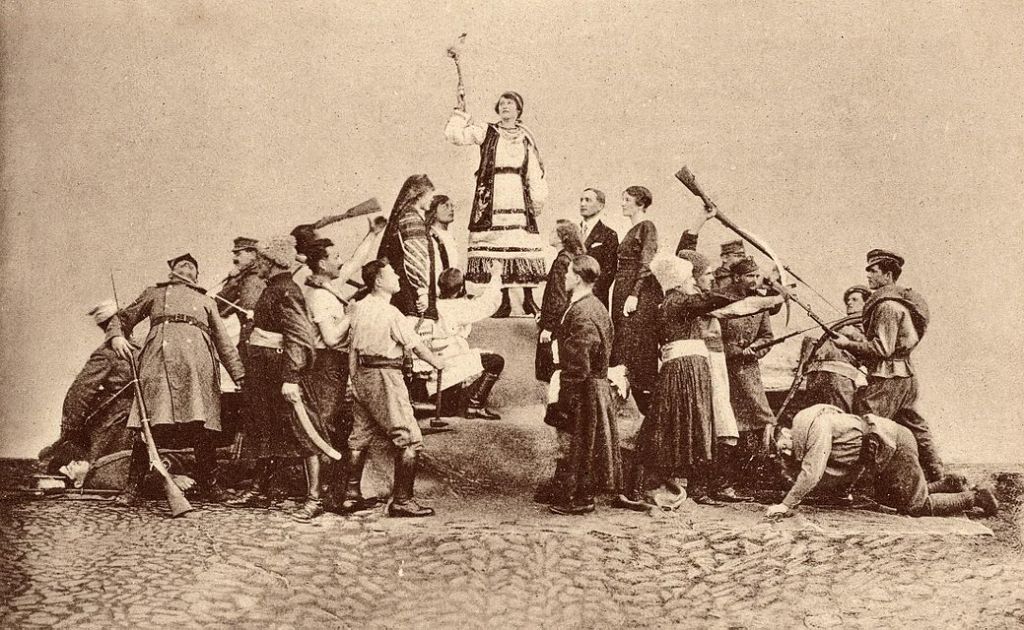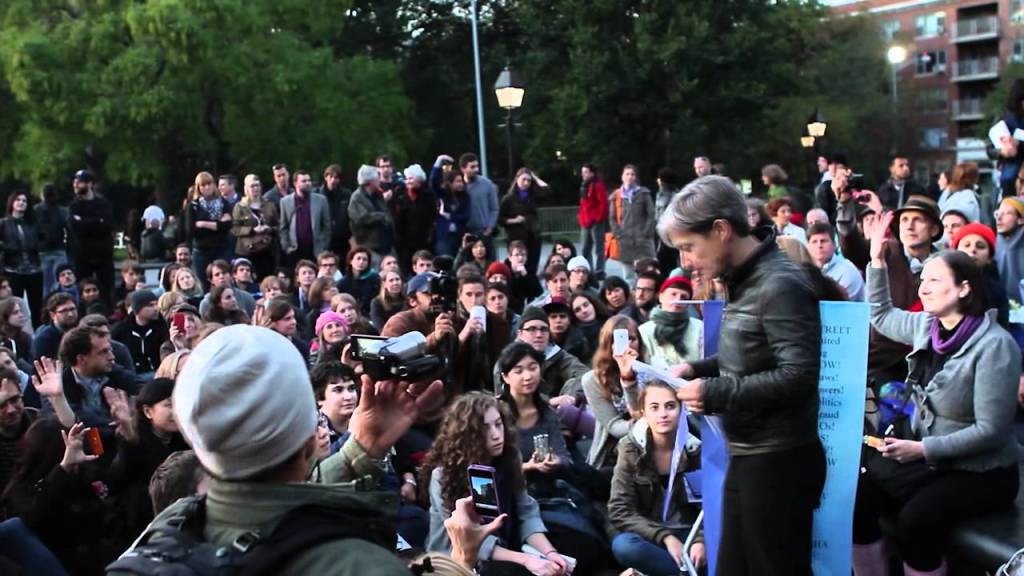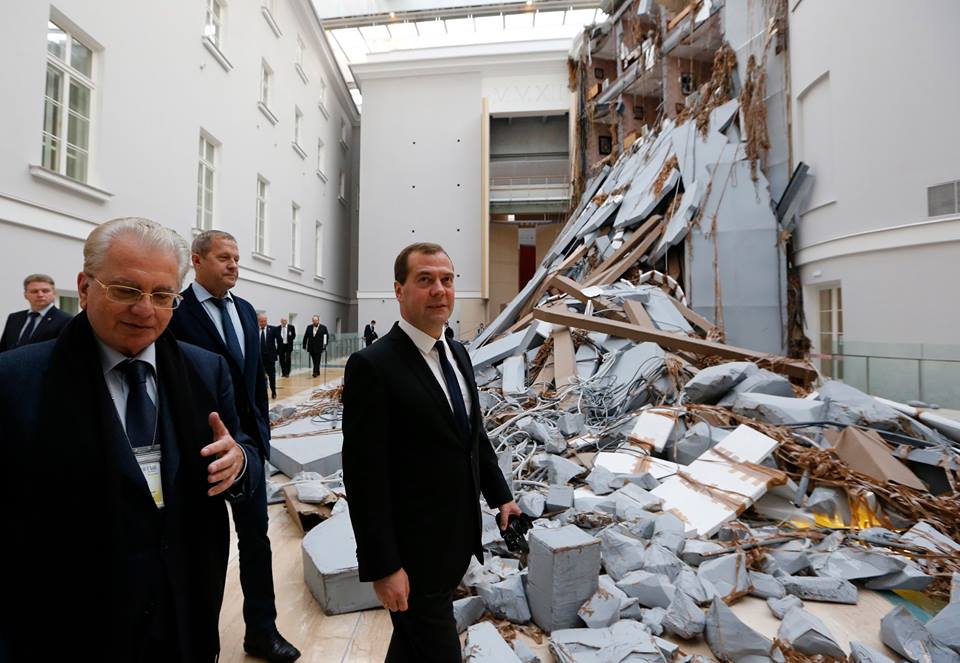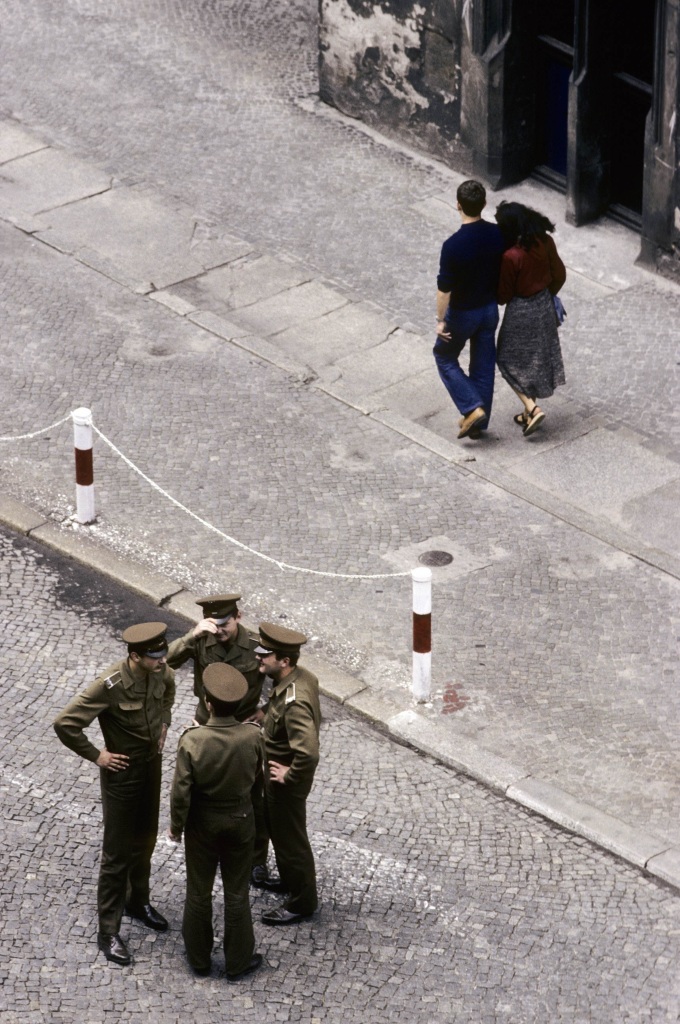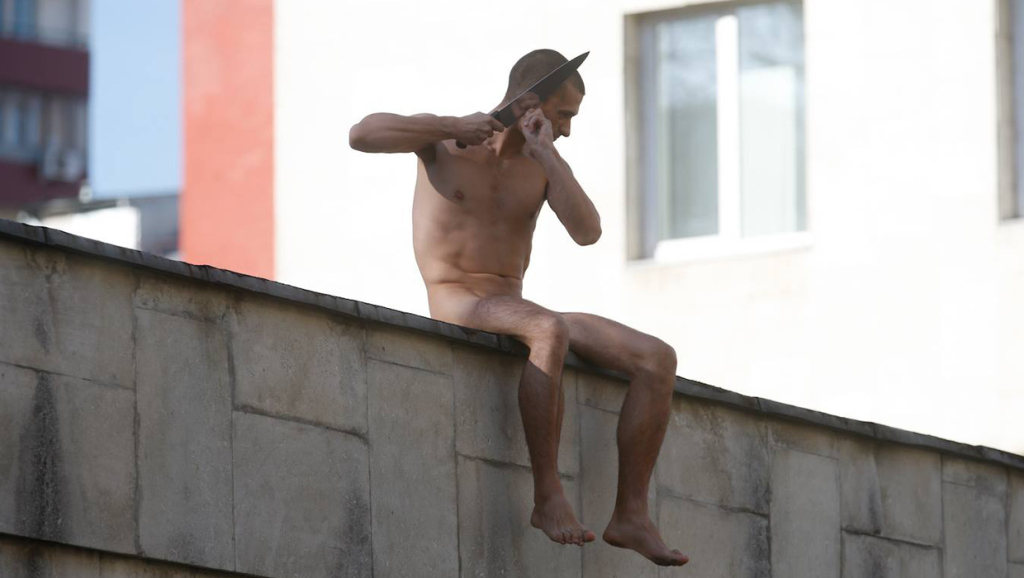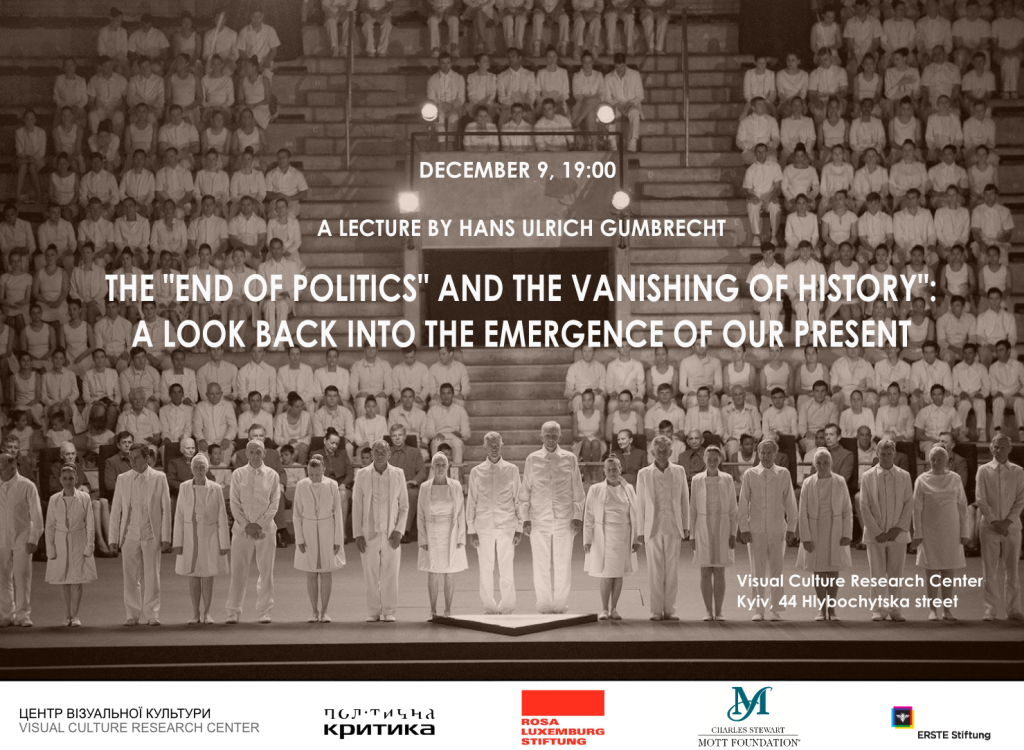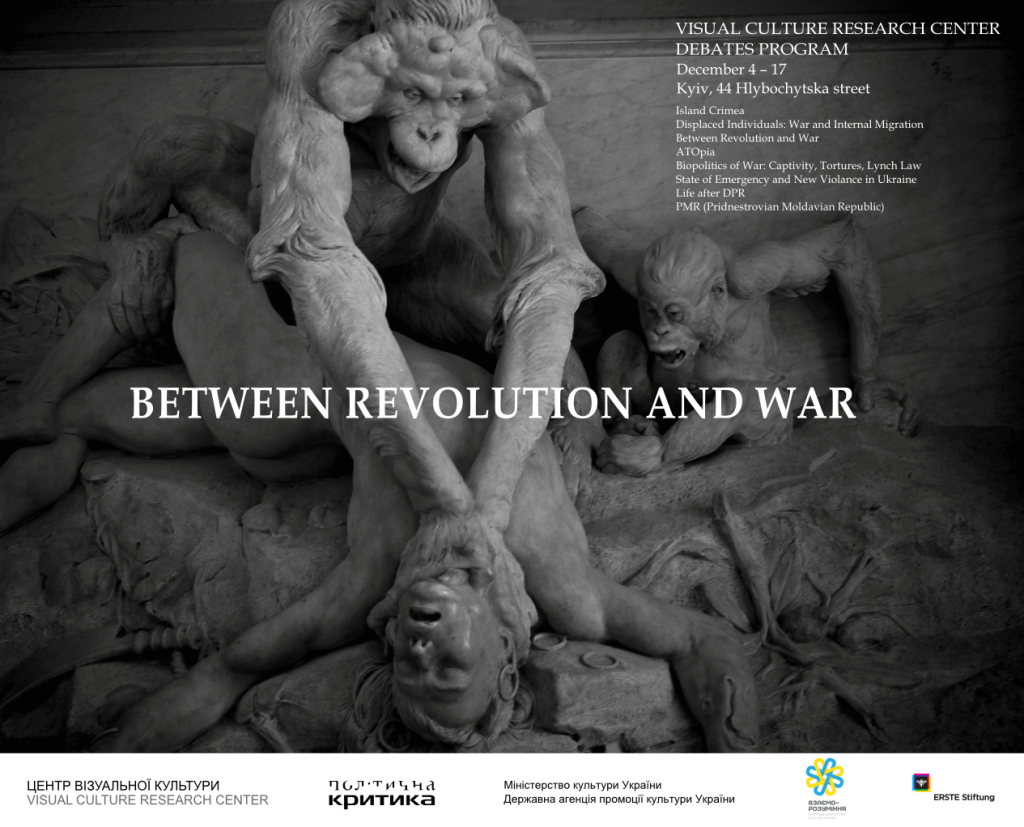Lecture by architect Edward Bilsky
Friday, February 6th, 2015, 19:00
Visual Culture Research Center (44 Hlybochytska Street (2d floor), Kyiv)
Visual Culture Research Center and Political Critique invite you to a lecture by architect Edward Bilsky, which will take place on Friday, February 6th, at 19:00.
Eduard Bilsky will talk about his main projects in Kyiv. How did they change from the first drafts to final versions? What were the architect’s suggestions that would have helped to form a completely different image of the city, but never got implemented? Why is Palace for Children and Youth considered to be one of the best examples of Kyiv architecture in the second half of the XX century, but today being ruined by real estate developers? Why had Vynohradar been repeatedly recognized as one of the best residential districts in the USSR, while its construction was never finished?
Eduard Bilsky is an Honored Architect of Ukraine, member of Ukrainian Academy of Architecture, Winner of the First USSR State Award in architecture. He is the author of more than 300 facilities in Kyiv, Odesa, Tashkent, Moscow, etc. Eduard Bilsky is the author of projects of residential blocks at Darnytsia, as well as the districts of Vynohradar, Synioozerny, “Pektoral” student campus, Kyiv Palace for Children and Youth, Palace for Ceremonial Events at Dniprovsky district, cross-functional entertainment centre at Vynohradar district, office buildings on 77, Velyka Vasylkivska Street, government facilities, bus stations in Kyiv and Odesa.
Admission is free
The lecture will take place within the framework of the exhibition Superstructure, which will take place at VCRC until the 28th of February
Supported by ERSTE Foundation and Charles Stewart Mott Foundation
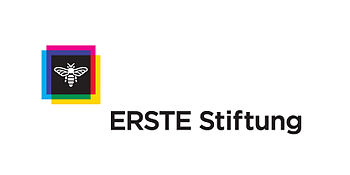
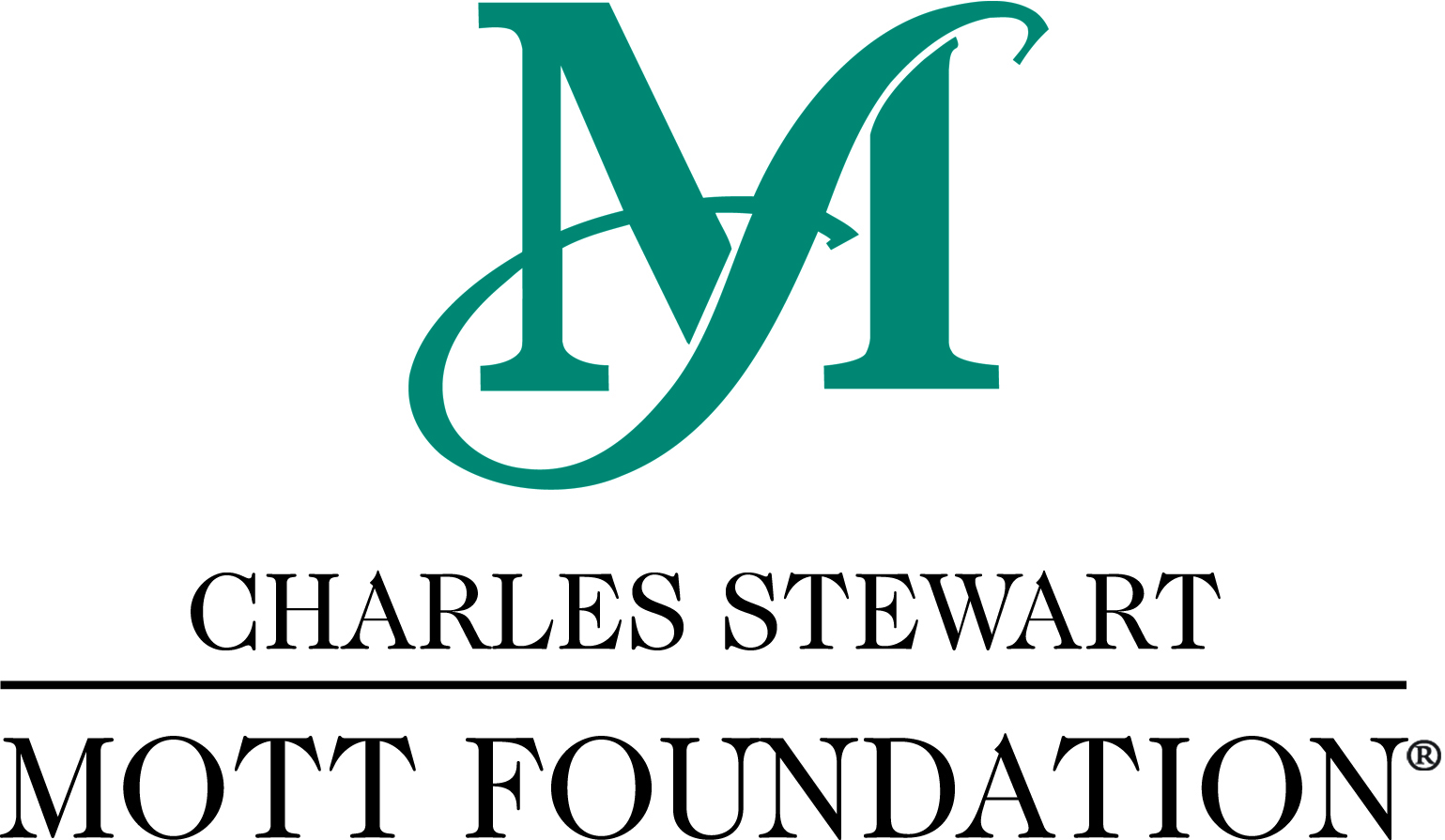
Exhibition “Superstructure” takes place within the frameworks of Unrendered Spaces project
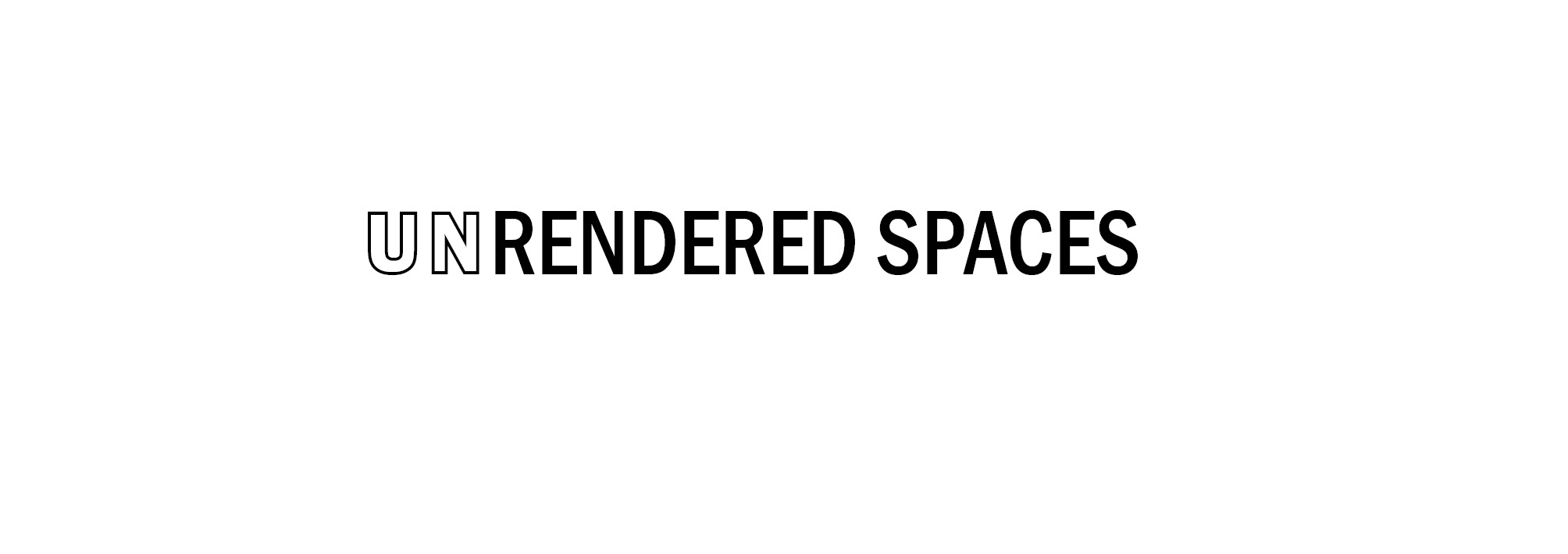
Visual Culture Research Center (VCRC) was founded in 2008 as a platform for collaboration between academic, artistic, and activist communities. VCRC is an independent initiative, which is engaged in publishing and artistic activities, scientific research, organization of public lectures, discussions, and conferences. In 2015 Visual Culture Research Center received the European Cultural Foundation’s Princess Margriet Award.
Visual Culture Research Center (44 Hlybochytska Street (1st floor), Kyiv)
Contacts:
+38096 4929600 (Nataliya Neshevets)
www.facebook.com/vcrc.org.ua
vcrc@vcrc.org.ua
Evgenia Gubkina. The Underground Railway of Kharkiv and Dnipropetrivsk in the Epoch of the “Developed Socialism”
Saturday, February 7th 2015, 18:00
Visual Culture Research Center (44 Hlybochytska Street (1st floor), Kyiv)
Visual Culture Research Centre and “Political Critique” invite you to the lecture by architecture researcher Evgenia Gubkina, which will take place on Saturday, February 7th, at 18:00.
In her lecture, Evgenia Gubkina will talk about the underground as an embodiment of myths about progress and prosperity that exist in the world and Soviet architecture. Why interiors of the stations were developed by the best architects and no expense was spared for the decoration? How the opening of new areas was used as propaganda instrument? By the example of subways in Kharkiv and Dnipropetrivsk Evgenia will show if the attitude to the subway in the 60 – 80s had changed, and how the “underground palace” of the late modernism looked like. What are the main conceptions and characteristics of the underground in the period of “stagnation”? Had the underground become utilitarian and not utopian project?
Evgenia Gubkina – is a scholar and curator, developer and guide of the route “Linear Сity” for the conference by international organization DOCOMOMO. Since 2012, consultant of the project “Ukrainian Weeks of the Constructivism” at Lenin gallery of contemporary art in Zaporizhia. In 2013 she was the co-founder of the project “Ukraine – Germany. 1920 – 1930. Commons” in Zaporizhia (Lenin) and the organizer of the exhibition in Kharkiv (Nürnberger House). In 2014 co-founded the public organization Urban Forms Center that realized such projects as “Atomograds: the planned cities in the contemporary society” (Zaporizhia), “Kharkiv: inventory” (Kharkiv) etc. Lives and works in Kharkiv.
Admission is free
The lecture will take place within the frameworks of the exhibition “Superstructure” going on at the VCRC until February 28th.
Exhibition “Superstructure” takes place within the frameworks of Unrendered Spaces project supported by ERSTE Foundation


Visual Culture Research Center (VCRC) was founded in 2008 as a platform for collaboration between academic, artistic, and activist communities. VCRC is an independent initiative, which is engaged in publishing and artistic activities, scientific research, organization of public lectures, discussions, and conferences. In 2015 Visual Culture Research Center received the European Cultural Foundation’s Princess Margriet Award.
Visual Culture Research Center (44 Hlybochytska Street (1st floor), Kyiv)
Contacts:
+38096 4929600 (Nataliya Neshevets)
www.facebook.com/vcrc.org.ua
vcrc@vcrc.org.ua
Superstructure: Exhibition at Visual Culture Research Center
Superstructure, an exhibition of the most outstanding projects of post-war neo-modernist architecture in Kyiv, will take place at Visual Culture Research Center from January 28th until February 28th. An exhibition will feature accomplished and unaccomplished projects by the Kyiv architects of 1950-1980ies, as well as the transformation of their utopian ideas.
The exhibition will open on the 28th of January at 19:00
Superstructure exhibition is one of the results of a long-term research of the Soviet neo-modernism in Ukraine. Materials of this research, initiated by Georg Schoelhammer within Local Modernities project, were previously presented at the exhibition Soviet Modernism 1955 – 1991: Unknown Stories, curated by Ekaterina Schapiro-Obermair, Katharina Ritter and Alexadnra Wachter at Architekturzentrum Wien (2012); Trespassing Modernities, curated by Ruben Arevshatyan and Georg Schoelhammer at SALT Galata gallery, Istanbul (2013), and Parallel Modernities at the 31st São Paulo Biennial (2014). Superstructure exhibition will present this research with a focus on Kyiv for the first time.
Central place at the exhibition belongs to an architect Eduard Bilsky, who is an author and co-author of numerous significant neo-modernist projects in Kyiv, including the Palace of Pioneers, Central Bus Station, residential district Vynogradar etc. His sketches, drawings, and project materials show the scale of utopian thinking of Kyiv architects. Works by an architect Florian Yuriyev (author of the famous ‘Kyiv saucer’ building) serve as an example of “synthesis of arts” in architecture. Tragic history of the Park of Memory by Ada Rybachuk and Volodymyr Melnychenko will be represented in film The Wall by Israel Goldstein. Besides, projects by Mykhaylo Budylovsky, Anatoliy Dobrovolsky, Yosyp Karakis, Avraam Miletsky, Nataliya Chmutina, Volodymyr Shevchenko, Valentyn Shtolko, and others, will be presented at the exhibition.
“In the early 1960s Kyiv architecture started speaking an international language of post-war neo-modernism. The community of architects, artists, and engineers, for whom architecture and construction were one of the many elements of modernist thinking, were in the vanguard of this process. Architects claimed the role of the demiurges, who create total works of art, and artists aspired for being equal co-authors of architectural projects. It was an attempt to transform the city into the environment for materialization of artistic thinking – in contrast to the strict unification of city space by typical construction and residential blocks”. [From the curatorial statement]
Research group of the project – Oleksandr Burlaka, Oleksiy Bykov, and Oleksiy Radynski.
Exhibition is open every day, except Mondays, from 13:00 until 19:00
Admission is free
Exhibition takes place within the frameworks of Unrendered Spaces project supported by ERSTE Foundation


Visual Culture Research Center (VCRC) was founded in 2008 as a platform for collaboration between academic, artistic, and activist communities. VCRC is an independent initiative, which is engaged in publishing and artistic activities, scientific research, organization of public lectures, discussions, and conferences. In 2015 Visual Culture Research Center received the European Cultural Foundation’s Princess Margriet Award.
Visual Culture Research Center (44 Hlybochytska Street (1st floor), Kyiv)
Contacts:
+38096 4929600 (Nataliya Neshevets)
www.facebook.com/vcrc.org.ua
vcrc@vcrc.org.ua
Serhiy Bilenky. Ukrainian Nationalism Between Democracy and the Dark Side: A Talk About Its Legacy
Tuesday, December 30th, 2014, 19:00
Visual Culture Research Center (44 Hlybochytska Street, Kyiv)
Visual Culture Research Center and Political Critique invite you to the lecture by Serhiy Bilenky, which will take place on Tuesday, December 30th, at 19:00.
Today, more than ever, we experience the tension between the democratic potential of Ukrainian nationalism and its “dark” side, both real and imagined threat of neo-Nazism and right-wing populism. Both threats were manifested during the Maidan and in the discourse around it. In his lecture historian Serhii Bilenky will explore origins of the current developments and history of the so-called classical period the Ukrainian national movement (or “Ukrainian nationalism” as it is often called in the West) of 19th – early 20th centuries, its main dilemma, traditions and sources, including roots of its “dark “side.
Serhiy Bilenky is a historian and lecturer at the University of Toronto. He taught courses on Russian, Ukrainian, and east European histories at the University of Toronto (2009-2010) and Columbia University (2009-2012). Prof. Bilenky is the author of two monographs: Mykhailo Maksymovych ta osvitni praktyky na Pravoberezhnii Ukraїni u pershii polovyni XIX stolittia (Kyiv, 1999) and Romantic Nationalism in Eastern Europe: Russian, Polish, and Ukrainian Political Imaginations (Stanford University Press, 2012); also he is the editor of the selected writings of the 19th century Ukrainian intellectuals Fashioning Modern Ukraine: Selected Writings of Mykola Kostomarov, Volodymyr Antonovych, and Mykhailo Drahomanov (Canadian Institute of Ukrainian Studies, 2014).
Admission is free
Visual Culture Research Center (VCRC) is a platform for collaboration of artists, activists and academics founded in Kyiv-Mohyla Academy in 2008. Since its inception VCRC had organized over 100 debates, conferences and research seminars, nearly 20 exhibitions and a series of street protest actions.
Contacts:
+38097 436 98 99 (Yustyna Kravchuk)
www.facebook.com/vcrc.org.ua
vcrc@vcrc.org.ua
Irina Zherebkina. War and Peace of Judith Butler
Saturday, December 27th, 18:00
Visual Culture Research Center (44 Hlybochytska Street, Kyiv)
Visual Culture Research Center, Political Critique, and Medusa Publishing House invite you to the presentation of gender studies anthology Image, Body, Order and to the lecture by Irina Zherebkina, which will take place on Saturday, December 27th, 18:00.
In her lecture Irina Zherebkina will consider Judith Butler’s thesis about radical equality in philosophy. The paradox of this thesis is in the fact that Butler understands radical equality not as equality of the subjects, which traditionally means equality of identities, but, to the contrary, as their inequality: after all every subject is in the state of becoming the other. It is this inequality, due to which we can speak about absolute equality in philosophy – equality of the ability of becoming the other. Zherebkina will consider polemic of Butler with Deleuze, Foucault, and Agamben concerning the questions of political struggle and political resistance under the conditions of contemporary capitalism.
The lecture will take place within the framework of presentation of gender studies anthology Image, Body, Order, published in the independent publishing house Medusa. Anthology Image, Body, Order is an interdisciplinary collection of essays on gender issues from German and English speaking worlds. The book contains articles on philosophy, economics, history of medicine, psychoanalysis, film theory, art history, and law. The collection represents texts by Judith Butler, Elfriede Jelinek, Nancy Fraser, Kristina von Braun and others.
Irina Zherebkina is the Doctor of Philosophy, Professor at Culture Theory and Philosophy of Science Department at Karazin Kharkiv National University, Director of Kharkiv Centre for Gender Studies, editor of Gender Studies journal. She is occupied with gender and feminist theory, feminist deconstruction of political anthropology of Soviet and post-Soviet societies, philosophical anthropology and contemporary political philosophy.
Admission is free
Organization partner – Medusa Publishing House
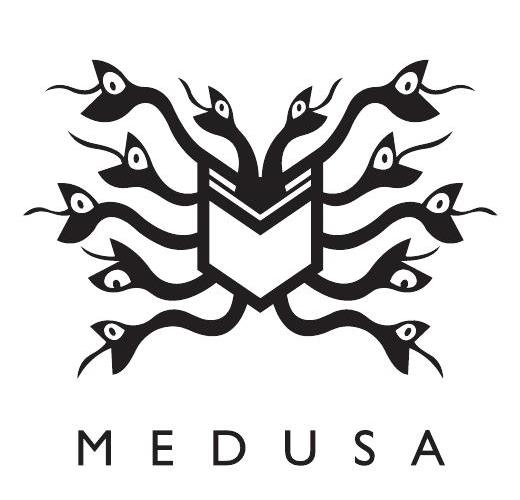
The event is supported by Heinrich Böll Foundation in Ukraine
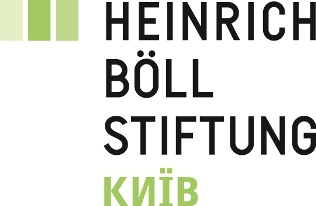
Visual Culture Research Center (VCRC) is a platform for collaboration of artists, activists and academics founded in Kyiv-Mohyla Academy in 2008. Since its inception VCRC had organized over 100 debates, conferences and research seminars, nearly 20 exhibitions and a series of street protest actions.
Contacts:
+38097 436 98 99 (Yustyna Kravchuk)
www.facebook.com/vcrc.org.ua
vcrc@vcrc.org.ua
Lecture by Ekaterina Degot: Contemporary Art and Critical Thinking
Sunday, December 21st, 18:00
Visual Culture Research Center (44 Hlybochytska Street, Kyiv)
Visual Culture Research Center and Political Critique invite you to the lecture by Ekaterina Degot, which will take place on Sunday, December 21st, at 18:00.
In summer 2014 curator and essayist Ekaterina Degot criticized system of contemporary art, which has served as shelter for critical thinking for a long time. According to Degot, association between contemporary art and critical thinking has crashed. This year’s MANIFESTA, which was held in Russia in the midst of Russian military aggression in Ukraine, is one of the symptoms of this collapse. In her lecture Ekaterina Degot will speak about the influence of oligarchic and state structures on the system of contemporary art. Proceeding from the question “what went wrong in the 1990s?”, she will analyze the influence of imperial thinking on contemporary Russian art.
Ekaterina Degot is a curator, essayist, and art historian. She is also an Artistic Director of The Academy of the Arts of the World (Cologne). Among her books: Terrorist Naturalism and Russian Art of the 20th Century. In 2013 she was a curator of the first Bergen Triennale. In 2014 she received Igor Zabel Award for Culture and Theory.
Further readings:
Ekaterina Degot. A Text That Should Never Have Been Written?
Ekaterina Degot. The List of Failures.Speech at Igor Zabel Award Ceremony.
Admission is free
The event will take place within the framework of “Between Revolution and War” project supported by Rosa Luxemburg Stiftung
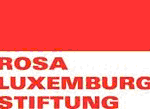
Supported by ERSTE Foundation and Charles Stewart Mott Foundation


Visual Culture Research Center (VCRC) is a platform for collaboration of artists, activists and academics founded in Kyiv-Mohyla Academy in 2008. Since its inception VCRC had organized over 100 debates, conferences and research seminars, nearly 20 exhibitions and a series of street protest actions.
Contacts:
+38097 436 98 99 (Yustyna Kravchuk)
www.facebook.com/vcrc.org.ua
vcrc@vcrc.org.ua
Marci Shore. Living in Truth: Or, the Uses and Disadvantages of History for Life
Friday, December 19th, 19:00
Visual Culture Research Center (44 Hlybochytska Street, Kyiv)
Visual Culture Research Center and Political Critique invite you to the lecture by an American historian Marci Shore, which will take place on Friday, December 19th, 19:00.
In her lecture Marci Shore will return to some of the metaphysical questions about subjectivity and responsibility once posed by East European dissidents in an attempt to illuminate some of the more essential questions revealed by a wrenching past. This lecture will explore the disenchantment with post-communism, the afterlife of totalitarianism, and the dilemmas of subjectivity—for Marx, for Havel’s greengrocer and Poland’s Solidarność, and on the Maidan.
Marci Shore: “A specter is haunting Europe—the specter of communism,” Marx and Engels wrote in 1848. Over a century and a half later, communism is no less haunting as a specter from the past. For many years the communist archives played the role of the Freudian unconscious: that dark psychic closet into which everything too disturbing for the conscious mind was thrown. The process of “accounting with the past” as an attempt above all to distinguish guilt from innocence has often blinded us to the deeper and more essential questions revealed by that past.
Marci Shore is a Professor of History at Yale University. She teaches European cultural and intellectual history. She is the author of the books The Taste of Ashes: The Afterlife of Totalitarianism in Eastern Europe and Caviar and Ashes: A Warsaw Generation’s Life and Death in Marxism, 1918-1968. Currently she is at work on a book project titled “Phenomenological Encounters: Scenes from Central Europe”, in which she will explore phenomenological aspects of Maidan protest.
The lecture will be held in English
Admission is free
Visual Culture Research Center (VCRC) is a platform for collaboration of artists, activists and academics founded in Kyiv-Mohyla Academy in 2008. Since its inception VCRC had organized over 100 debates, conferences and research seminars, nearly 20 exhibitions and a series of street protest actions.
Contacts:
+38097 436 98 99 (Yustyna Kravchuk)
www.facebook.com/vcrc.org.ua
vcrc@vcrc.org.ua
Pyotr Pavlensky. Bureaucratic Convulsion: On the New Economy of Political Art
Sunday, December 14th, 18:00
Visual Culture Research Center (44 Hlybochytska Street (1st floor), Kyiv)
Visual Culture Research Center and Political Critique invite you to visit the lecture by Pyotr Pavlensky, which will take place on Sunday, December 14th, at 18:00.
Over the last few years performance artist Pyotr Pavlensky became one of the most outstanding representatives of Russian radical art, which fulfills the function of uncompromising critique of the regime, while political opposition in Russia is missing. Such public artistic actions by Pyotr Pavlensky, as Carcass, Fixation, Liberty, and Separation have shocked Russian society and questioned its ability to resist the authorities. In his lecture, Pyotr Pavlensky will speak about the artistic strategies of finding a way out in a political dead end. How to ruin the decorative superstructure, which conceals the violence of the state apparatus, with its own hands? How to use the instruments of the regime against itself?
Pyotr Pavlensky is a Russian performance artist, author of radical actions in the public space. Editor of Political Propaganda magazine and publishing house of the same name. Lives and works in Saint-Petersburg.
Admission is free
The event will take place within the framework of “Between Revolution and War” project supported by Rosa Luxemburg Stiftung

Supported by ERSTE Foundation and Charles Stewart Mott Foundation


Visual Culture Research Center (VCRC) is a platform for collaboration of artists, activists and academics founded in Kyiv-Mohyla Academy in 2008. Since its inception VCRC had organized over 100 debates, conferences and research seminars, nearly 20 exhibitions and a series of street protest actions.
Contacts:
+38097 436 98 99 (Yustyna Kravchuk)
www.facebook.com/vcrc.org.ua
vcrc@vcrc.org.ua
A lecture by Hans Ulrich Gumbrecht. The “End of Politics” and the “Vanishing of history”: A Look Back into the Emergence of Our Present
Tuesday, December 9th, 2014, 19:00
Visual Culture Research Center (44 Hlybochytska Street (1st floor), Kyiv)
Visual Culture Research Center and Political Critique invite you to the lecture by an American philosopher and cultural historian Hans Ulrich Gumbrecht, which will take place on Tuesday, December 9th, 2014, at 19:00.
The past few years have produced an increased number of events and situations suggesting that we may have arrived at a “vanishing point of history” and, therefore, at an “end of politics.” Instead of repeating the familiar argumentative turn of denying the value of such impressions and of their radical interpretation, this lecture will try to confirm and to explain the ends of history and of politics in our present, based on a historicization of the concept of “history”. It will thus arrive at a description of the present that offers fresh analytic perspectives and perhaps even some starting points for post-historical and post-political solutions of problems that we have been obsessed with for a long time.
Hans Ulrich Gumbrecht – American philosopher, cultural historian, and literary theoretician, Professor at Stanford University. He is famous for his books In 1926: Living at the Edge of Time, The Production of Presence: What Meaning Cannot Convey, and numerous texts on western philosophical tradition and history of humanities. In addition, he studies media and mass culture, aesthetics and epistemology of every-day life, histories of European literatures. His book In Praise of Athletic Beauty was published in Ukrainian.
The lecture will be held in English
Admission is free
The event will take place within the framework of “Between Revolution and War” project supported by Rosa Luxemburg Stiftung

Supported by ERSTE Foundation and Charles Stewart Mott Foundation


Visual Culture Research Center (VCRC) is a platform for collaboration of artists, activists and academics founded in Kyiv-Mohyla Academy in 2008. Since its inception VCRC had organized over 100 debates, conferences and research seminars, nearly 20 exhibitions and a series of street protest actions.
Visual Culture Research Center (44 Hlybochytska Street, Kyiv)
Contacts:
+38097 436 98 99 (Yustyna Kravchuk)
www.facebook.com/vcrc.org.ua
vcrc@vcrc.org.ua
Debates Program “Between Revolution and War”
December 4th – 17th, 2014
Visual Culture Research Center and Political Critique invite you to the series of discussions and screenings “Between Revolution and War”, which will take place from the 4th until the 16th of December, 2014.
During the situation of war conflict, when radical attitudes and hostility grow within the society and the degree of hate speech increases, there is a need for critical thinking and de-ideologized perspective on the reality. The project focuses on the functioning of public institutions in the revolutionary situation, in the conditions of war and occupation, as well as on the connections between symbolic and real violence and its influence on political processes in Ukrainian society after Maidan. Through the implementation of discursive, visual and media instruments the project opposes to the rhetoric of violence and seeks for the strategies of inclusion of emancipatory potential of Maidan into the structural changes of Ukrainian society.
December 4th, 19:00 – Island Crimea
December 5th, 19:00 – Displaced Individuals: War and Internal Migration
December 7th, 17:00 – ATOpia
December 11th, 19:00 – Biopolitics of War: Captivity, Tortures, Lynch Law
December 12th, 19:00 – Nataliya Gumenyuk. “Life after DPR”. Screening and discussion
December 13th, 17:00 – State of Emergency and New Violence in Ukraine
December 16th, 19:00 – PMR (Pridnestrovian Moldavian Republic)
December 17th, 19:00 – Between Revolution and War
Admission is free
Events will take place within the framework of “Mutual Understanding” program supported by Ministry of Culture of Ukraine and State Agency for Promotion of Culture of Ukraine
![]()
Visual Culture Research Center (VCRC) is a platform for collaboration of artists, activists and academics founded in Kyiv-Mohyla Academy in 2008. Since its inception VCRC had organized over 100 debates, conferences and research seminars, nearly 20 exhibitions and a series of street protest actions.
Visual Culture Research Center (44 Hlybochytska Street, Kyiv)
Contacts:
+38097 436 98 99 (Yustyna Kravchuk)
https://www.facebook.com/vcrc.org.ua
vcrc@vcrc.org.ua

